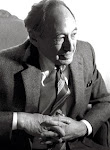October 30, 2009
Internet of Things
Wikipedia
Brother Melvillian posted this on my Facebook. Nice find man.
Dozens in Congress under ethics inquiry
The report appears to have been inadvertently placed on a publicly accessible computer network, and it was provided to The Washington Post by a source not connected to the congressional investigations. The committee said Thursday night that the document was released by a low-level staffer.
Washington Post
The Earth Cools, and Fight Over Warming Heats Up
Then came a development unforeseen by the U.N.'s Intergovernmental Panel on Climate Change, or IPCC: Data suggested that Earth's temperature was beginning to drop.
That has reignited debate over what has become scientific consensus: that climate change is due not to nature, but to humans burning fossil fuels. Scientists who don't believe in man-made global warming cite the cooling as evidence for their case. Those who do believe in man-made warming dismiss the cooling as a blip triggered by fleeting changes in ocean currents; they predict greenhouse gases will produce rising temperatures again soon.
The reality is more complex. A few years of cooling doesn't mean that people aren't heating up the planet over the long term. But the cooling wasn't predicted by all the computer models that underlie climate science. That has led to one point of agreement: The models are imperfect.
October 29, 2009
Internet Turns 40 Today: First Message Crashed System
On October 29, 1969, that message became the first ever to travel between two computers connected via the ARPANET, the computer network that would become the Internet.
The truncated transmission traveled about 400 miles (643 kilometers) between the University of California, Los Angeles, and the Stanford Research Institute.(Watch video about the birth of the Internet.)
The electronic dispatch was supposed to be the word "login," but only the first two letters were successfully sent before the system crashed.
National Geographic News
October 28, 2009
Has Anyone Read the Copenhagen Agreement?
Enter Lord Christopher Monckton. The former adviser to Margaret Thatcher gave an address at Bethel University in St. Paul, Minnesota, earlier this month that made quite a splash. For the first time, the public heard about the 181 pages, dated Sept. 15, that comprise the United Nations Framework Convention on Climate Change—a rough draft of what could be signed come December.
So far there have been more than a million hits on the YouTube post of his address. It deserves millions more because Lord Monckton warns that the aim of the Copenhagen draft treaty is to set up a transnational "government" on a scale the world has never before seen.
WSJ
October 27, 2009
Facebook 'memorialises' profiles
When reporting a death, users must offer "proof" by submitting either an obituary or news article.
"When someone leaves us, they don't leave our memories or our social network," Max Kelly, head of security at the firm, wrote in the official Facebook blog.
BBC News



